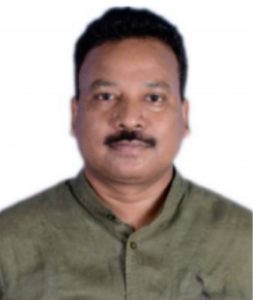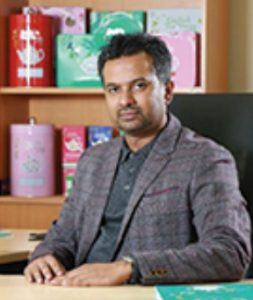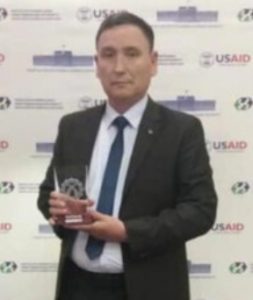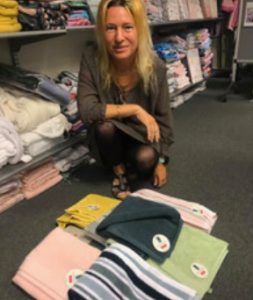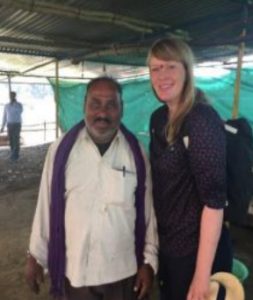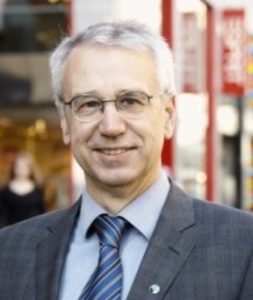Pratibha Syntex Limited
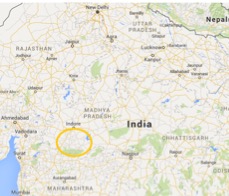
Product: Cotton
FLO ID: 4531
Country: India
Individual members: 1,524
Year Fairtrade Certified: 2006
Organisation Type: Smallholder
Organisation Details
Pratibha – Vasudha Jaivik Krishak Kalyan Samiti (VASUDHA) is a registered society of smallholder cotton farmers in district Khargone in the state of Madhya Pradesh in India. VASUDHA comprises of 1524 individual members spread across 47 villages, of which 1,417 are men and 107 are women. The staple crops of the region are wheat, maize, soybean, pigeon pea, grams and groundnut. The soil is volcanic in nature.
The cooperative produces organic seed cotton which is certified by the Control Union Certifications and Fairtrade.
VASUDHA is promoted by Pratibha Syntex Ltd., which is one of the world’s largest textiles manufacturers with a strong focus on sustainability. Pratibha Syntex specialises in knitted textiles and works with renowned apparel brands and is located in district Dhar in Madhya Pradesh.
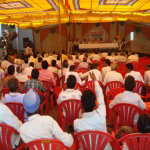
VASUDHA meetings are democratic and participative
Pratibha has a manufacturing capacity of 150,000 bales annually out of which around 80,000 bales are from sustainable sourced. The bales are collected through its own farming initiative which comprises of 32,000 farmers in the states of Rajasthan and Madhya Pradesh. Pratibha’s vision is to produce 100 % sustainable materials in the future.
Pratibha has a manufacturing capacity of 150,000 bales annually out of which around 80,000 bales are from sustainable sourced. The bales are collected through its own farming initiative which comprises of 32,000 farmers in the states of Rajasthan and Madhya Pradesh. Pratibha’s vision is to produce 100 % sustainable materials in the future.
Cotton Processing and Sale
Cotton harvesting takes place over three to four months, from mid-October to mid-January. Each farm sees five to six pickings and the produce is stored temporarily at the farmers’ until the final picking is complete. Pratibha Syntex representatives take samples from each farmer for quality checking and then farmers take the cotton to the gin for processing. The gin is in close proximity to the farmer cluster.
At the ginner, the weighing is done in front of the farmer and payment made in cash on the same day. Apart from this, farmers get a bonus from Pratibha on total sales annually in a bid to promote Fairtrade and organic farming.
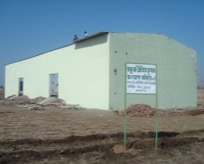
Warehouse for storing cotton
During processing, meticulous care is taken to ensure the integrity and traceability of the Fairtrade cotton. Each bale, for instance, has a unique code to ensure traceability across the supply chain.
The bales are sent to Pratibha Syntex’s spinning mill where it is further processed into yarn, fabric, and garments according to the buyer’s needs.
Women and Community
Although there are social and cultural challenges, VASUDHA is working towards empowering women to be key stakeholders in the decision-making process through a series of trainings. The goal is to increase women representation in the executive committee by 15 per cent.
VASUDHA has established a skill development center for women in the community where they learn stitching and tailoring to supplement their income. Toilet facilities for women have also been created in the village. Efforts are being made to enroll all the girls of the community in the local schools.
Fairtrade Benefits/ Premium
VASUDHA has been investing the Fairtrade Premium in projects that make a difference to its members and the community.
Social benefits
The Vasudha Vidya Vihar school was built in 2009 for the children of the farmers. Today, over 450 students attend the school, which offers education until the 12th grade. Farmers pay a nominal tuition fee, while Fairtrade farmers get a 10% subsidy on the fee and an additional discount on sibling enrollment.
The Premium has also been invested in healthcare activities such as medical camps, clean toilets, water purifiers; as well as medical and crop insurance, cattle welfare and financial support to an old age home.
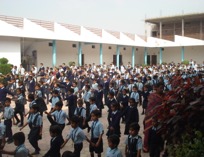
Children at the Vasudha Vidya Vihar School
Quality and Productivity Improvement
VASUDHA provides its farmers quality seed material every year to maintain genetic and physical purity in order to avoid GMO contamination at the farm level. The cooperative has its own non-GMO seed production programme and is working towards seed sustainability and sovereignity.
VASUDHA also makes its own chemical-free fungicides, insecticides and nutritional supplements and sells it to farmers at cost.
The cooperative also offers periodic training to its farmers. Technical experts provide periodical workshops and training camps on different topics. The farmers are trained on the technology of producing organic inputs at home; the inputs are also available for sale through this centre on subsidized rates.
Vasudha has constructed a warehouse for its farmers where they can store their crops to avoid distress sales of their produce.
Water Management
Vasudha has installed drip irrigation for 125 farmers covering 125 acres, conserving 35 to 40% water. 80% of FT cotton farmers are using drip irrigation today.
Vasudha has promoted organic manure production and increased the organic carbon content in the soil for retaining its moisture for efficient water usage.
Infrastructure
The region is very well connected by roads and railway network, electricity is available round the clock and even rural roads are very well built.
Environment
Vasudha is promoting agroforestry among its farmers by introducing Bund Farming with drumstick and gliricidia plants which reduce soil erosion, increase biodiversity and help supplement income. In 2015, they distributed 100,000 saplings free of cost to the farmers and in 2016 the target is 500,000 saplings.
Sustainable farming practices have contributed to increasing the soil fertility. Reduced usage of chemical fertilizers and pesticide have saved the water resources from pollution. All these improvements have improved the health situation of the community.
The manufacturing unit of Pratibha Syntex is also practising environment friendly technologies and practices like rainwater harvesting, zero water discharge, use of natural gas and effective recycling of spinning and cut waste.

